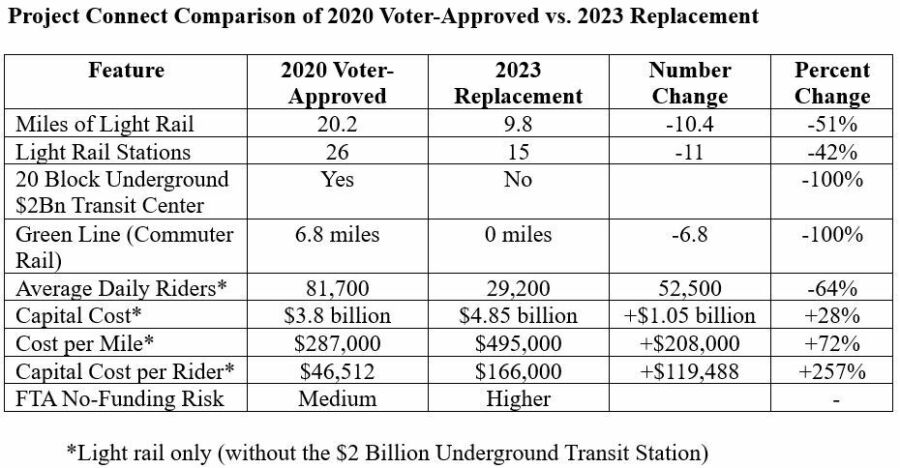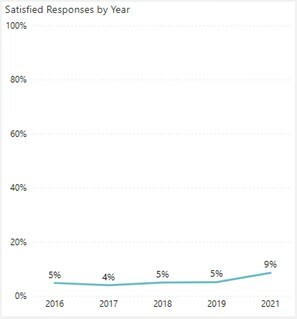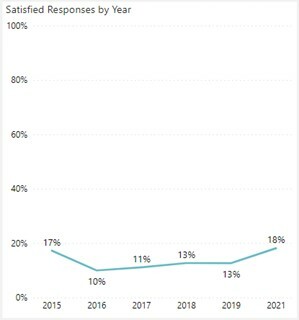Austin’s costly and controversial transit plan, Project Connect, is in the news again, after a group of area residents filed a lawsuit “arguing that the current plan is so different from the one presented to voters in 2020, that it should be put to the vote again.” To press home that point, the lawsuit offers up a compelling visual detailing what was promised in 2020 and what officials want to serve up today. As you can see, the differences are rather stark.

Whether these facts—which were discussed more at-length here—are persuasive enough to win the day in court is yet to be seen. However, one thing is clear when it comes to Project Connect and mobility in general: No one likes the direction things are going.
Based on the city’s own satisfaction survey data, very few Austinites approve of government’s handling of basic transportation issues, like traffic. In fact, in 2021, just 9% of respondents said they were satisfied with “traffic flow on major highways (IH-35, Mopac Expy, US-183, Loop 360, SH-71).” That mark was actually a five-year high; the lowest point was in 2017 when a meager 4% signaled their satisfaction.

Another question asked Austinites their thoughts on “traffic flow on major city streets (Congress Ave, Lamar Blvd, South First St, Burnet Rd, Parmer Lane, Riverside Drive, etc.)” and respondents, again, gave the city low marks. According to the survey results, just 18% of respondents were satisfied with traffic flow on these key arteries, meaning more than 8 out of 10 residents disapprove of the city’s handling. If there is a silver lining, then it is the fact that that 18% mark is up from a low of 10% in 2016.

Source: The city of Austin’s Open Data Portal
Such deep and profound levels of dissatisfaction among the general public may explain what motivated Austin officials to promise the moon in the 2020 election. And of course, once those rosy promises, as expressed in the Contract with the Voters, were broken, then traffic-weary Austinites had every reason to be upset (and sue).
And so, here we are. Project Connect is a train wreck. City Hall is up a creek. And the average commuter is stuck in a mess—still.